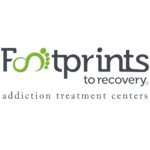If you’re using drugs while pregnant, please know that you are not alone and that there is compassionate, effective treatment available to help you and your unborn baby. It’s important to get treatment because abusing drugs or alcohol when pregnant puts you at risk for several physical and mental health issues and can be dangerous or deadly for the fetus.
Substances like illicit drugs, tobacco, alcohol, and prescription drugs have been proven unsafe during pregnancy by a number of studies. Unfortunately, it’s a public health issue that continues to be a problem. Around 1 in 20 women use at least one addictive substance during pregnancy. Pregnant women most frequently use tobacco, followed by cannabis, alcohol, and other drugs. Learn why the effects of drug use during pregnancy put you and your fetus at increased risk for pregnancy complications and health issues — and how to get help.
How Do Drugs Affect the Fetus and Baby?
There is no way to know how drug abuse, cigarette smoking, or drinking alcohol, will affect your fetus until after the fact. The only surefire way to keep you and your baby safe during pregnancy is avoiding substance use completely. Like oxygen and nutrients, drugs and alcohol also cross the placenta and reach the fetus. This means that when you take drugs or drink alcohol, your baby takes them too. This increases the risk of several adverse outcomes, including:
1. Stillbirth
Some research finds that smoking during pregnancy or using substances like prescription pain relievers, marijuana, and illicit drugs may double or triple the risk of stillbirth. When your baby dies more than 20 weeks into a pregnancy it’s considered a stillbirth. Usually, this occurs while your baby is still inside your womb, but can occasionally happen during labor and birth.
2. Low Birth Weight
Babies born at a weight less than 5.5 pounds are considered to have a low birth weight. This puts them at risk for several adverse effects including:
- Heart defects
- Brain bleeding
- Infections
- Jaundice
- Respiratory distress
- Eye problems or blindness
- Death
One study published in Pediatric Research found babies of moms who smoked marijuana were 375 grams lighter than their drug-free counterparts. Another study found that exposure to drugs like opioids in the womb doubled a baby’s risk for low birth weight and a small-for-gestational-age diagnosis.
3. Preterm Labor and Delivery
Preterm birth puts your baby at risk for many of the same problems as a baby with low birth weight. One study found that drug abuse during pregnancy greatly increases your risk of premature birth. Mothers using cocaine during pregnancy or multiple substances were at the highest risk. Several studies have also shown a positive correlation between marijuana use during pregnancy and babies born early. A study by the University of Adelaide found babies born to marijuana users were five times more likely to be born preterm than women who did not smoke pot.
4. Poor Cognitive Function
Brains of developing fetuses are affected by maternal drug use. Substance abuse can impact:
- Cortical thickness
- Neurobiology
- Molecular pathways
These conditions can lead to poorer cognitive performance, emotional problems, and behavioral issues in childhood.
5. Mental Health Issues
Youth who were exposed to drugs in the womb are at higher risk for mental health issues like depression, addiction, and ADHD. This is due to both biological and environmental factors of maternal drug use. For example, living in a home with parental drug abuse is sometimes linked with neglect or emotional issues that can fuel mental health disorders. The way that substance abuse affects the fetus’ developing brain can also increase the risk of mental illness symptoms.
6. Sudden Infant Death Syndrome (SIDS)
A tragedy that affects thousands of babies a year, sudden infant death syndrome (SIDS) occurs in children under one year old. This type of infant death usually happens during sleep, with no previous warning signs. While the causes of SIDS are still being researched, some studies suggest that using illegal drugs during pregnancy can increase the risk. Much of the research on SIDS and drug abuse has centered on cocaine. Some researchers have found that using cocaine during pregnancy increased the risk of SIDS by 15%. Other researchers found a rate of 8.4 SIDS deaths out of every 1000 births to cocaine users.
7. Neonatal Abstinence Syndrome (NAS)
Many babies born to mothers addicted to drugs like opioids will experience withdrawal symptoms in the first 48 hours, and sometimes longer. According to the Substance Abuse and Mental Health Services Administration (SAMHSA), NAS may include:
- Fever
- Diarrhea
- Excessive crying / inability to soothe
- Tremors and seizures
- Poor sucking or feeding
- Sleep problems
- Congestion
8. Birth Defects
Drugs that are considered to be “teratogenic” have been associated with an increased risk of birth defects. The type of birth defect depends on:
- Genetic susceptibilities of mom and baby
- Substance
- Extent of usage and exposure to the fetus
Teratogens can be found in medicines, chemicals, or toxins. They can also be linked to a medical condition or infectious agent. Illicit drugs containing teratogens include alcohol and cocaine.
Self-Assessment: Am I Addicted?
"*" indicates required fields
Contact Form
Fill out the form below and one of our admissions team members will reach out to you:
"*" indicates required fields
How Do Drugs Affect a Pregnant Woman?
Drug abuse doesn’t just have serious consequences for your fetus. When you abuse drugs and alcohol, you’re at risk for both the regular dangers of substance abuse as well as health issues specifically related to your condition. Pregnancy complications can be painful and dangerous and may include:
- Preterm premature rupture of the membranes (PPROM) – This is when the sac holding your fetus ruptures before 37 weeks of pregnancy, which can cause infections.
- Placental abruption – This condition may include stomach pain, back pain, and vaginal bleeding. It’s also known as premature detachment.
- Miscarriage – This is the loss of a fetus before 20 weeks of pregnancy. The severity of blood, fluid, and tissue you pass depends on how far along you were. Can cause extreme hormonal/emotional fluctuations.
- Spontaneous abortion – Abortion often comes with stomach pain, blood and tissues passing from the vagina, lower back pain, and extreme hormonal/emotional fluctuations.
- Placenta previa – A condition where the placenta sits low in your uterus and covers part or all of the cervix.
Addiction Treatment During Pregnancy
Addiction treatment for pregnant women may begin with medical detox. It’s imperative that you don’t detox without medical help if you’ve been taking drugs or drinking during pregnancy. There are specific medical protocols for tapering or detoxing pregnant women depending on what substance you’ve abused and individual health factors. Only a physician can help determine what type of detox is safest for you and your developing baby. Your maternal health and proper prenatal care should be a priority during and after detox.
Addiction is a complex disease that requires medical and behavioral interventions to achieve long-term sobriety. After detox, it’s critical to receive specialized addiction and mental health treatment that addresses the reasons behind your substance use. Often circumstances like past trauma, co-occurring mental health disorders, and low self-worth underlie drug and alcohol abuse. In addiction treatment, you’ll begin to heal those emotional wounds and develop healthy ways of coping with difficulties, so you maintain sobriety.
A recovery is a place of acceptance, not judgment. There is no shame in getting help. It’s courageous and admirable. With determination and the right treatment, you can give yourself and your baby the best chance at a healthy, rewarding life.
References
- Overview and epidemiology of substance abuse in pregnancy – PubMed
- Street drugs and pregnancy | March of Dimes
- About Alcohol Use During Pregnancy
- Tobacco, drug use in pregnancy can double risk of stillbirth | NICHD – Eunice Kennedy Shriver National Institute of Child Health and Human Development
- Risk of preterm and early term birth by maternal drug use – PubMed
- Mental health in youth prenatally exposed to opioids and poly-drugs and raised in permanent foster/adoptive homes: A prospective longitudinal study – ScienceDirect
- The Influences of Drug Abuse on Mother-Infant Interaction Through the Lens of the Biopsychosocial Model of Health and Illness: A Review
- Birth outcomes associated with cannabis use before and during pregnancy | Pediatric Research
- Sudden Unexpected Infant Death and Sudden Infant Death Syndrome | SUID and SIDS | CDC
- Maternal marijuana use has independent effects on risk for spontaneous preterm birth but not other common late pregnancy complications – ScienceDirect
- Maternal and Child Health After Prenatal Opioid Exposure | Pediatrics | JAMA Network Open
- Maternal marijuana use has independent effects on risk for spontaneous preterm birth but not other common late pregnancy complications – ScienceDirect
- Risk of preterm and early term birth by maternal drug use – PubMed
- Understanding Genetics: A District of Columbia Guide for Patients and Health Professionals | Appendix D | Teratogens/Prenatal Substance Abuse
- Maternal and Paternal Recreational Drug Use and Sudden Infant Death Syndrome | Adolescent Medicine | JAMA Pediatrics
- Substance Abuse in Pregnancy | GLOWM
- A Collaborative Approach to the Treatment of Pregnant Women With Opioid Use Disorders: Practice and Policy Considerations for Child Welfare, Collaborating Medical, and Service Providers




